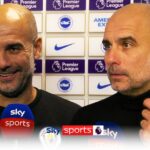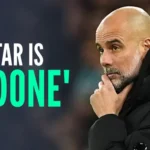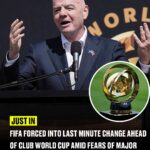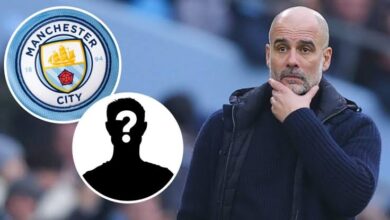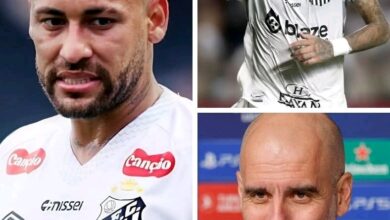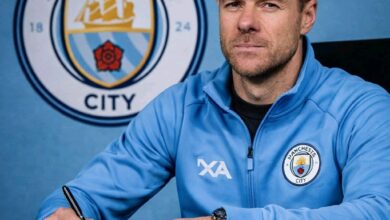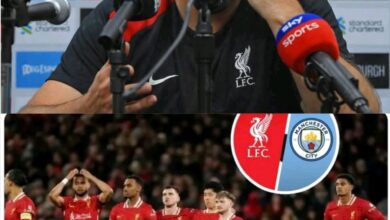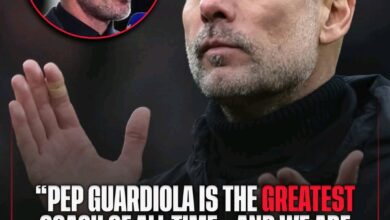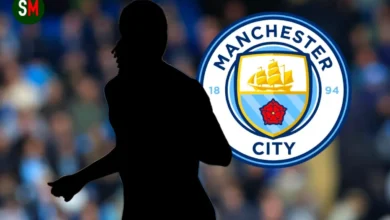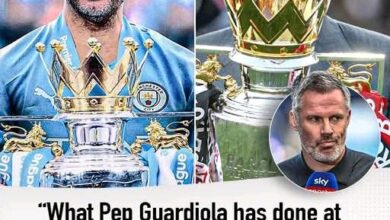Man City name Club World Cup squad, omit Grealish, Walker
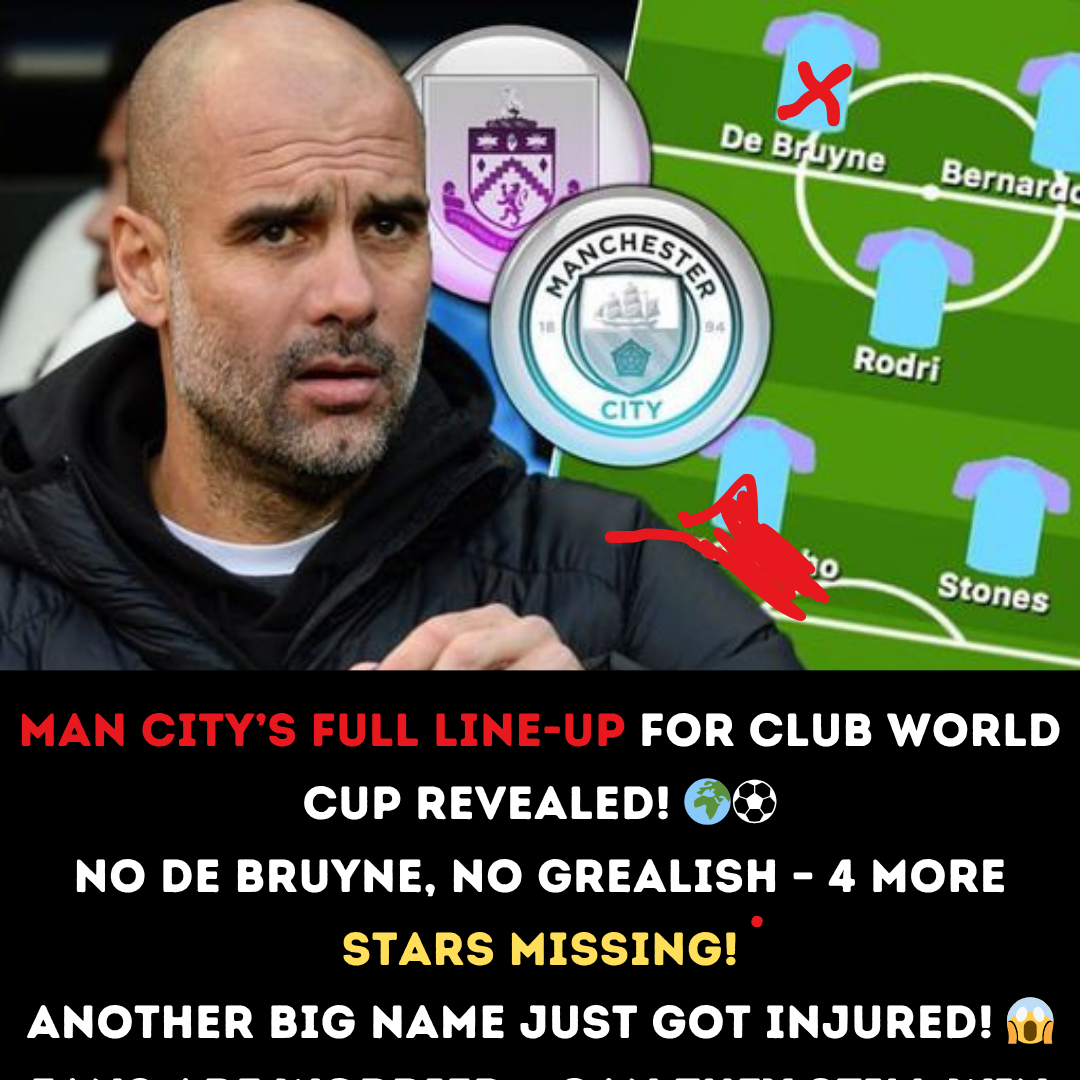
Manchester City’s announcement of their FIFA Club World Cup squad on June 11, 2025, represents far more than a simple team selection for an upcoming tournament. It marks a pivotal moment in the club’s recent history, signaling the end of an era for some high-profile players while simultaneously showcasing Pep Guardiola’s commitment to squad renewal and tactical evolution. The decision to omit Jack Grealish and Kyle Walker from the traveling party to Philadelphia has sent shockwaves through the football world, confirming long-standing speculation about their futures at the Etihad Stadium.
The inaugural expanded FIFA Club World Cup, set to commence on June 18, 2025, in Philadelphia, presents Manchester City with an opportunity to make history as the first club to lift this new iteration of the prestigious tournament. However, the path to glory will require Guardiola to navigate significant squad changes while maintaining the tactical sophistication and winning mentality that has defined his tenure at Manchester City.
The Grealish Conundrum: From Record Signing to Expendable Asset
The £100 Million Question Mark
Jack Grealish’s exclusion from Manchester City’s Club World Cup squad represents the culmination of a transfer saga that began with such promise in the summer of 2021. When City triggered his £100 million release clause at Aston Villa, making him the most expensive British player in history, expectations were astronomical. The creative midfielder was seen as the missing piece in Guardiola’s tactical puzzle, a player capable of providing the individual brilliance and unpredictability that could unlock the most stubborn defensive systems.
However, four years later, the numbers tell a sobering story. Grealish’s tally of 17 goals in 157 appearances across all competitions paints a picture of a player who has struggled to justify his hefty price tag. More concerning for City supporters is his Premier League output this season – a solitary goal that underscores his diminished impact in England’s top flight. These statistics become even more stark when considered against his £300,000-per-week salary, making him one of the highest-paid players in the Premier League.
Tactical Evolution and Positional Competition
Grealish’s decline in importance at Manchester City cannot be attributed solely to individual performance levels. Guardiola’s tactical evolution has played a crucial role in marginalizing the English international. The arrival of Jeremy Doku from Rennes brought a different dynamic to City’s wing play – pace, directness, and a willingness to take on defenders in one-on-one situations. These qualities offered Guardiola tactical options that Grealish’s more considered, possession-based approach could not provide.
Similarly, the emergence of Claudio Echeverri, the young Argentine sensation acquired from River Plate, has provided City with another creative outlet. Echeverri’s technical ability and tactical intelligence have impressed Guardiola sufficiently to include him in major squad selections, further reducing Grealish’s opportunities for regular first-team football.
The tactical shift also reflects Guardiola’s ongoing adaptation to the evolving demands of modern football. While Grealish’s ability to retain possession and draw fouls made him valuable in certain contexts, City’s need for more direct attacking thrust in crucial moments has seen the Spaniard favor players who can provide immediate goal threats or create clear-cut chances for teammates.
Market Reality and Financial Pragmatism
Manchester City’s willingness to accept £40 million for a player they purchased for £100 million represents a stark acknowledgment of market reality. The club’s hierarchy, led by Director of Football Txiki Begiristain, has recognized that holding onto an underperforming asset serves neither the player’s career nor the club’s tactical requirements.
The financial implications extend beyond the transfer fee. Removing Grealish’s substantial weekly wage from the books would provide City with significant financial flexibility, particularly important given Financial Fair Play considerations and the club’s desire to invest in other areas of the squad. This pragmatic approach reflects the business acumen that has underpinned City’s success in recent years.
Interest from Aston Villa adds an intriguing dimension to potential negotiations. A return to Villa Park would offer Grealish the opportunity to rebuild his career in familiar surroundings, while Villa would be acquiring a player whose best performances came in their colors. Newcastle United, Everton, West Ham United, and Italian giants Napoli are also reportedly monitoring the situation, suggesting that despite his struggles at City, Grealish remains an attractive proposition for clubs seeking creative talent.
Walker’s Departure: The End of a Defensive Era
A Trophy-Laden Legacy
Kyle Walker’s exclusion from the Club World Cup squad marks the end of one of the most successful periods in Manchester City’s history from a defensive perspective. Since joining from Tottenham Hotspur in 2017 for £45 million, Walker has been instrumental in City’s tactical setup, providing the pace and attacking thrust down the right flank that has become synonymous with Guardiola’s approach.
Walker’s contribution to City’s success cannot be overstated. His recovery pace has allowed City to maintain high defensive lines, confident in his ability to deal with counterattacking threats. His crossing ability and positional intelligence have also provided an additional attacking dimension, creating width that allows City’s midfielders to operate in more central areas.
The Milan Connection and Career Transition
Walker’s January transfer request and subsequent links with AC Milan reflect a player at a career crossroads. At 35 years of age, the England international faces the reality that his peak years are behind him, while City’s investment in younger defensive options suggests the club is planning for the future.
AC Milan’s interest represents an attractive proposition for Walker. The opportunity to experience Serie A football, with its tactical sophistication and rich history, could provide the veteran defender with a new challenge while extending his career at the highest level. For Milan, Walker’s experience and proven ability in big matches would add valuable depth to their defensive options.
The timing of Walker’s departure also aligns with City’s strategic planning. Rather than allowing his contract to expire and losing him for nothing, the club appears positioned to secure a reasonable transfer fee while giving Walker the opportunity to continue his career elsewhere.
Squad Strengthening: New Faces for New Challenges
Rayan Cherki: French Flair and Creative Promise
The inclusion of Rayan Cherki in City’s Club World Cup squad represents one of the most exciting additions to Guardiola’s tactical arsenal. The French attacking midfielder, known for his technical ability and creative vision, brings a different dimension to City’s attacking options. His ability to operate in multiple positions across the front line provides Guardiola with tactical flexibility that could prove crucial in tournament football.
Cherki’s playing style – characterized by close control, intelligent movement, and an eye for the unexpected pass – aligns perfectly with City’s possession-based philosophy. His inclusion suggests that Guardiola sees him as a long-term solution to the club’s creative needs, potentially filling the void left by Grealish’s departure.
Tijjani Reijnders: Midfield Reinforcement
Tijjani Reijnders’ addition to the City squad addresses a specific tactical requirement. The Dutch midfielder’s work rate, pressing ability, and technical skills make him an ideal fit for Guardiola’s midfield requirements. His experience in Serie A with AC Milan has prepared him for the physical and tactical demands of elite football, while his versatility allows him to operate in multiple midfield roles.
Reijnders’ inclusion is particularly significant given the aging profile of some City midfielders. While players like Ilkay Gundogan and Bernardo Silva continue to perform at the highest level, the addition of younger legs ensures that City can maintain their intensity over the course of a demanding tournament.
Rayan Ait-Nouri: Attacking Full-Back Options
The acquisition of Rayan Ait-Nouri addresses City’s need for attacking thrust from the left-back position. The Algerian international’s pace and crossing ability provide an alternative to the more defensively-minded options previously available to Guardiola. His inclusion suggests a tactical shift toward more aggressive attacking play from the full-back positions.
Ait-Nouri’s experience in the Premier League with Wolverhampton Wanderers has prepared him for the physical demands of English football, while his technical ability fits seamlessly into City’s passing-based approach. His presence in the squad provides Guardiola with tactical options that could prove crucial in different phases of the tournament.
Marcus Bettinelli: Goalkeeping Depth
While perhaps the least headline-grabbing addition, Marcus Bettinelli’s inclusion provides City with experienced goalkeeping depth. The former England international’s presence ensures that City have reliable options should injury or suspension affect their primary goalkeeping choices during the tournament.
Tactical Analysis: Guardiola’s Evolving Philosophy
Formation Flexibility and Player Adaptation
The composition of City’s Club World Cup squad reveals significant insights into Guardiola’s tactical thinking for the tournament. The inclusion of multiple players capable of operating in different positions suggests that the Spanish manager is planning for various tactical scenarios that may arise during the competition.
The attacking options available to Guardiola are particularly intriguing. With Erling Haaland leading the line and Omar Marmoush providing an alternative striker option, City have different tactical approaches available depending on the opposition. The supporting cast of Phil Foden, Jeremy Doku, Savinho, and the newly-added Cherki provides a wealth of creative options that can be deployed in multiple formations.
Midfield Balance and Control
City’s midfield composition for the Club World Cup reflects Guardiola’s commitment to maintaining control of games while providing attacking threat. The presence of Rodri as the defensive anchor remains crucial to City’s tactical approach, but the addition of Reijnders provides alternatives that could allow for different tactical setups.
The creative midfield options are particularly impressive. Bernardo Silva’s experience and tactical intelligence, combined with the youthful exuberance of players like Echeverri and O’Reilly, ensures that City can adapt their approach based on match situations and opposition tactics.
Defensive Solidity and Attacking Thrust
Despite Walker’s departure, City’s defensive options remain formidable. The center-back partnership possibilities are extensive, with Ruben Dias and John Stones providing the experience and leadership necessary for tournament football. The addition of Vitor Reis and Abdukodir Khusanov provides depth and different tactical options.
The full-back positions have been refreshed with Ait-Nouri’s inclusion, while Rico Lewis’s versatility allows him to operate in multiple positions across the defense and midfield. This flexibility could prove crucial in tournament situations where tactical adaptations may be necessary during matches.
Group Stage Analysis: The Path to Glory
Wydad AC: Opening Challenge from Morocco
City’s opening fixture against Wydad AC presents interesting tactical challenges. The Moroccan champions, known for their organized defensive approach and quick counterattacking style, will likely set up to frustrate City’s possession-based game. This match will provide an early test of how Guardiola’s new-look squad adapts to different tactical approaches.
Wydad’s experience in African club competitions has prepared them for high-pressure situations, and their physicality could pose problems for City’s more technical players. However, City’s superior individual quality and tactical sophistication should prove decisive if they can maintain their patience and composure.
Al Ain: Desert Challenge from the UAE
Al Ain’s presence in the Club World Cup represents the strength of football development in the United Arab Emirates. Their tactical discipline and organized approach will require City to be at their creative best to break down defensive structures. The desert conditions and potential travel fatigue could add additional complications to this fixture.
The match against Al Ain will likely see Guardiola rotate his squad to manage player workload while maintaining competitive standards. This presents opportunities for newer squad members to demonstrate their worth and establish their places in Guardiola’s tactical plans.
Juventus: European Heavyweight Showdown
The group stage clash with Juventus represents the most significant challenge City will face before the knockout rounds. The Italian giants’ tactical sophistication and defensive excellence will provide a stern test of City’s attacking capabilities. This match could potentially determine group positioning and subsequent knockout round opponents.
Juventus’s experience in high-pressure situations and their ability to defend deep while remaining dangerous on the counterattack will require City to be at their absolute best. The tactical battle between Guardiola and the Juventus coaching staff promises to be one of the tournament’s most intriguing encounters.
Historical Context and Tournament Significance
The Expanded Format Challenge
The 2025 FIFA Club World Cup represents a significant expansion of the previous format, bringing together 32 clubs from around the world in a month-long tournament. This expansion provides clubs like Manchester City with the opportunity to test themselves against diverse tactical approaches and playing styles from different continents.
For City, the tournament represents an opportunity to claim a trophy that has thus far eluded them in its various formats. While they have dominated domestically and succeeded in the Champions League, the Club World Cup would add another dimension to their trophy collection and further cement their status among the world’s elite clubs.
Legacy and Ambition
Guardiola’s legacy at Manchester City is already secure, but success in the inaugural expanded Club World Cup would add another chapter to his remarkable coaching story. The tournament provides an opportunity to showcase the tactical evolution that has characterized his time at City while demonstrating the club’s ability to adapt and succeed in different contexts.
The squad selection for this tournament reflects not just tactical considerations for the immediate competition, but also strategic planning for City’s future. The integration of new signings alongside established stars creates a template for how the club intends to evolve while maintaining its competitive edge.
Conclusion: A New Chapter Begins
Manchester City’s Club World Cup squad announcement represents far more than a simple team selection. It signals the beginning of a new era at the Etihad Stadium, one characterized by strategic squad renovation and tactical evolution. The decision to move on from high-profile players like Grealish and Walker, while integrating exciting new talents, demonstrates the club’s commitment to continuous improvement and adaptation.
The upcoming tournament in the United States provides the perfect stage for this new-look City squad to announce themselves on the global stage. Success would validate Guardiola’s tactical decisions and squad management, while failure could raise questions about the wisdom of significant squad changes during a transition period.
As City prepare to face Wydad AC in their opening fixture at Lincoln Financial Field in Philadelphia, they carry with them the hopes of becoming the first winners of the expanded FIFA Club World Cup. The journey ahead promises tactical intrigue, individual brilliance, and the kind of high-level football that has made Manchester City one of the world’s most admired clubs.
The omission of Grealish and Walker may have dominated headlines, but the real story lies in the future – a future that begins with this tournament and the new generation of players ready to write the next chapter in Manchester City’s remarkable story.


